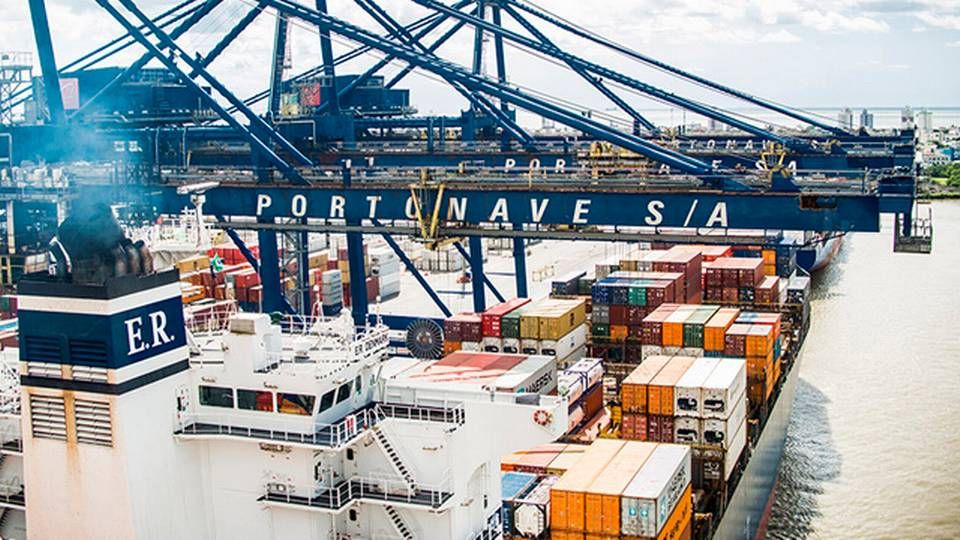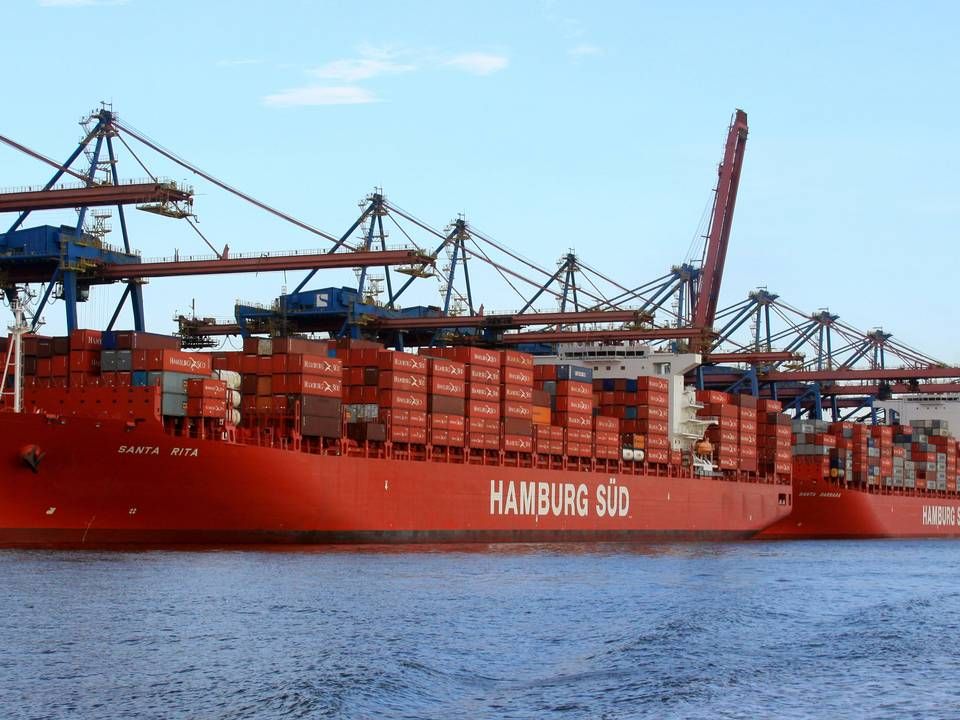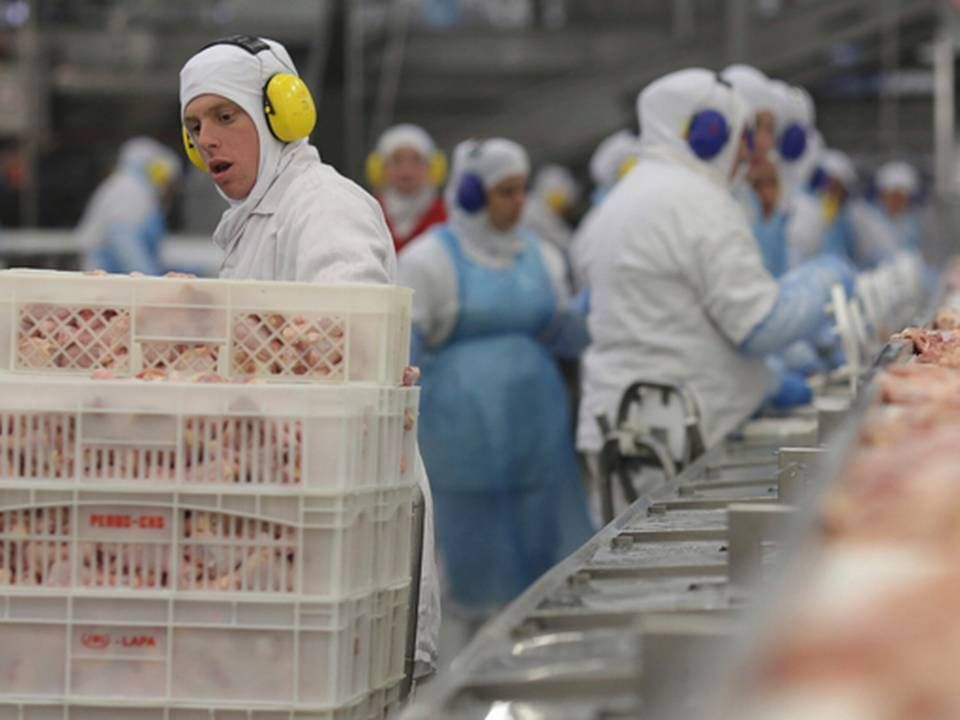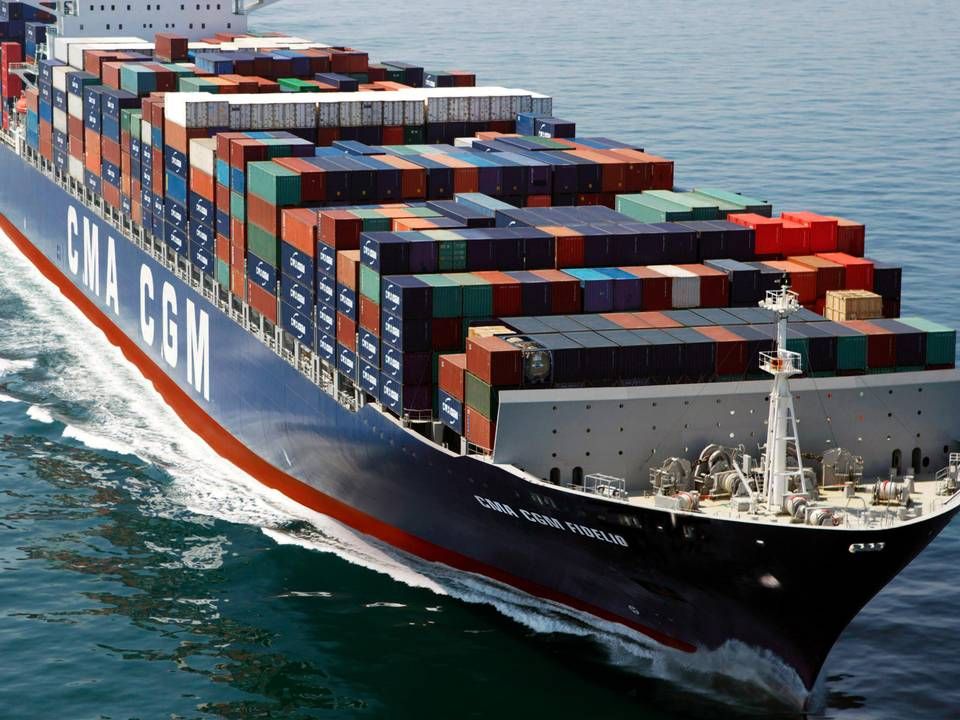MSC gains full control of vital Brazilian reefer port

Container carrier MSC, partner with Maersk Line in the 2M alliance, will now gain full control of Brazil's second-largest port in the city Portonave, one of the country's most important shipping and export ports for Brazilian food exports.
Swiss Mediterranean Shipping Company (MSC) is taking over the remaining 50 percent of the shares in Portonave S.A. via port company Terminal Investment Limited (TIL) for a total value of BRL 1.3 billion (USD 393 million), informs the seller of the stake, listed Brazilian investment company TPI Triunfo, in a statement.
The completion of the transaction is subject to approval by Brazil's competition authority CADE and is contingent on whether the deal meets a set of requirements, according to a corporate statement released Monday in São Paulo.
Solidifies position
With full ownership of the terminal in Portonave, Terminal Portuáro de Navegantes, MSC solidifies its position as one of the biggest carriers in Brazil, which is Latin America's largest economy and a major exporter of meat and other agricultural goods to Europe and Asia.
According to the latest estimates from Brazilian analyst institute Datamar, MSC handles around 25 percent of the reefer container transport out of Brazil.
Along with Maersk Line and the carrier's acquisition of Hamburg Süd, around two thirds of the market will be controlled by three shipping groups, including Hapag-Lloyd, which has in recent years merged with CSAV in Chile and Arab UASC.
Far-reaching consequences
The intensifying concentration among major container carriers has far-reaching consequences for seaborne transports in and out of Brazil and other places in Latin America, where there is growing concern throughout the supply chain about the increasing dominance of just a few carriers.
Maersk-owned APM Terminals and MSC's Terminal Investment Limited collectively own BTP Terminals in Brazil's largest port in Santos.
In the Brazilian state Santa Catarina, which represents the second-largest export market in Brazil, APM Terminals operates a terminal in the port Itajai, while Hamburg Süd is co-owner of a terminal in the same region.
The concentration of fewer carriers in Brazil is likely one reason why goods have begun to pile up on Brazil's east coast in recent months, where all links on the supply chain, ranging from exporters and port terminals to warehouses, are affected by a widespread shortage of refrigerated containers, reefers.
This is because carriers have moved a large portion of their reefer containers to other regions in Latin America where rates are higher.
Brazilian exporters and port companies described the situation as such to ShippingWatch, elaborating that the shortage of empty containers is most urgent at the ports in the states Rio Grande do Sul and Santa Catarina, which are both home to major producers and exporters of frozen meat and fruit to Europe and Asia.
English Edit: Gretchen Deverell Pedersen
Maersk and Hamburg Süd must wait a long time for recovery in Brazil
Billion-dollar Brazilian exports hit hard by container shortage
Related articles
CMA CGM buys Mercosul from Maersk Line
For subscribers



















